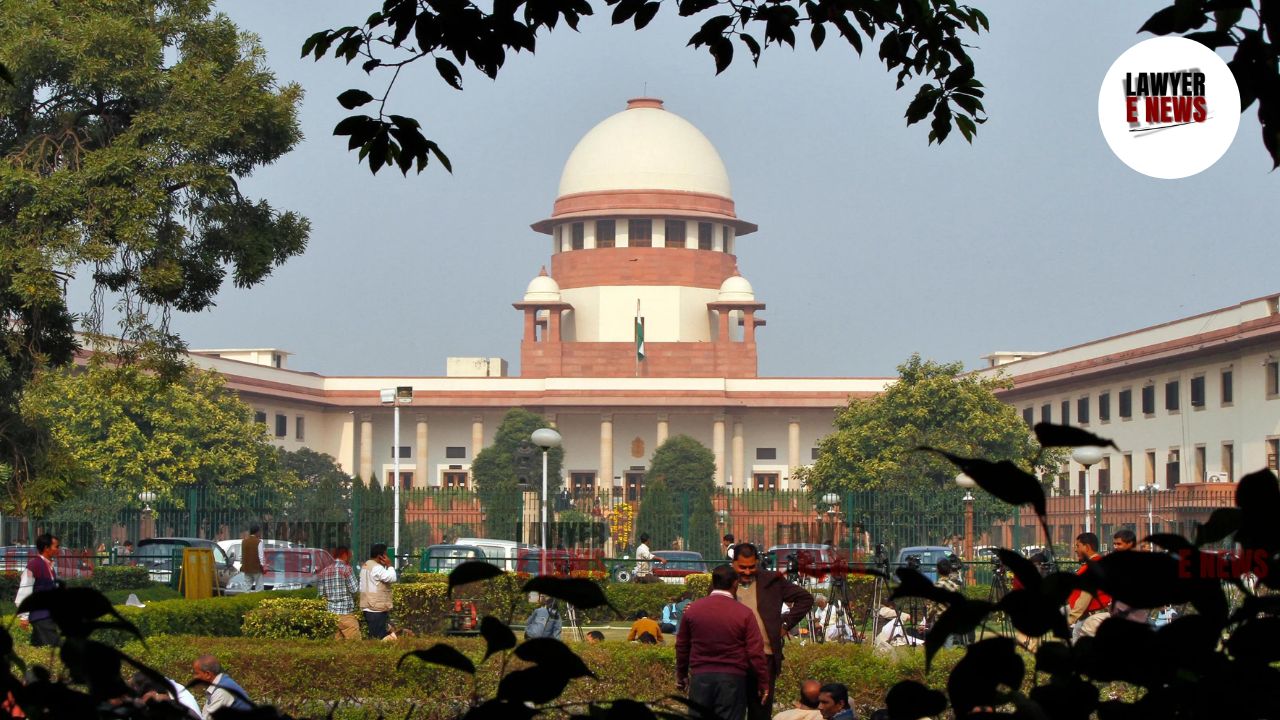-
by Admin
15 February 2026 2:36 AM



In a significant judgment Supreme Court quashed a gift deed executed by an elderly mother in favor of her son under Section 23 of the Maintenance and Welfare of Parents and Senior Citizens Act, 2007. The bench, comprising Justice C.T. Ravikumar and Justice Sanjay Karol, ruled that the respondent-son failed to fulfill the maintenance and support conditions of the gift deed, rendering the transfer void.
The Court observed that the Act is a beneficial legislation aimed at ensuring the welfare of senior citizens, and its provisions, including Section 23, must be interpreted to promote its objectives rather than restrict its application.
The Court held that Section 23(1) of the Senior Citizens Act is designed to protect senior citizens from neglect or abuse by transferees of their property. If a property transfer is conditional upon the transferee providing maintenance and support but fails to do so, the transfer becomes void.
“The legislation’s intent is to secure the welfare of senior citizens. If the conditions of maintenance are not fulfilled, the transfer must be treated as having been obtained by fraud or undue influence,” the bench observed.
The Court relied on its earlier rulings in Sudesh Chhikara v. Ramti Devi (2022) and S. Vanitha v. Deputy Commissioner, Bengaluru Urban District (2021) to emphasize that the Act is aimed at addressing the social challenges faced by elderly citizens, particularly in cases where they are abandoned or neglected by their families.
The Court examined two documents:
The gift deed dated September 7, 2019, which stated that the son (donee) would maintain the mother (donor) and provide for her needs.
A promissory note signed the same day, committing the son to take care of his mother, failing which she could revoke the gift deed.
The Court concluded that both documents demonstrated a clear understanding that the son was obligated to support his mother, and his failure to fulfill this obligation justified the cancellation of the gift deed.
The Court underscored that the Senior Citizens Act is a social welfare legislation and must be interpreted liberally to achieve its objectives. It criticized the restrictive approach adopted by the Division Bench of the High Court, stating:
“The Division Bench’s strict interpretation defeats the purpose of the Act. A purposive construction that advances the welfare of senior citizens must be adopted.”
The Court reiterated principles laid down in Ashwani Kumar v. Union of India (2019) and Brahmpal v. National Insurance Company (2021), which emphasize the need for purposive and beneficiary-friendly interpretation of welfare laws.
The Supreme Court clarified that tribunals under the Senior Citizens Act are empowered to order possession transfers or evictions if necessary to secure the welfare of senior citizens.
“Tribunals constituted under the Act can order possession to be restored to senior citizens to ensure their protection and dignity. To limit this power would defeat the Act’s very purpose,” the Court stated, citing its earlier judgment in S. Vanitha v. Deputy Commissioner.
The Court rejected the Division Bench’s observation that Section 23 is a standalone provision and clarified that it is intrinsically linked to the Act’s broader objectives of ensuring the welfare of senior citizens.
“Section 23 empowers senior citizens to secure their rights promptly when they transfer property subject to maintenance conditions. It is not an isolated provision but a critical tool to achieve the Act’s goals,” the bench ruled.
The dispute centered on a property gifted by the appellant, an elderly mother, to her son through a deed executed on September 7, 2019. The deed explicitly required the son to maintain and support his mother.
After facing neglect and alleged harassment from her son, the appellant filed an application under Sections 22 and 23 of the Senior Citizens Act to revoke the gift deed. The Sub-Divisional Magistrate allowed the application, declaring the gift deed void.
The Collector and a Single Judge of the Madhya Pradesh High Court upheld this decision. However, the Division Bench reversed the judgment, observing that the gift deed did not explicitly contain maintenance conditions and that the promissory note was insufficient.
Aggrieved by this, the appellant approached the Supreme Court.
Supreme Court’s Decision:
Gift Deed Quashed
The Supreme Court held that the respondent-son’s failure to fulfill his maintenance obligations rendered the gift deed void under Section 23 of the Act.
Possession Restored to the Appellant
The Court directed that possession of the property be restored to the appellant by February 28, 2025.
Tribunal’s Powers Upheld
The Court affirmed that tribunals under the Act have the authority to order possession transfers and issue eviction orders to safeguard the welfare of senior citizens.
Clarification on Section 23
The Court clarified that Section 23 is integral to the Act’s purpose and must be interpreted in line with its objectives.
The Supreme Court’s judgment in Urmila Dixit v. Sunil Sharan Dixit & Ors. reaffirms the principle that beneficial legislation must be interpreted purposively to protect vulnerable sections of society. By quashing the gift deed and restoring possession to the appellant, the Court has set a precedent for upholding the rights and dignity of senior citizens.
Date of Decision: January 2, 2025
